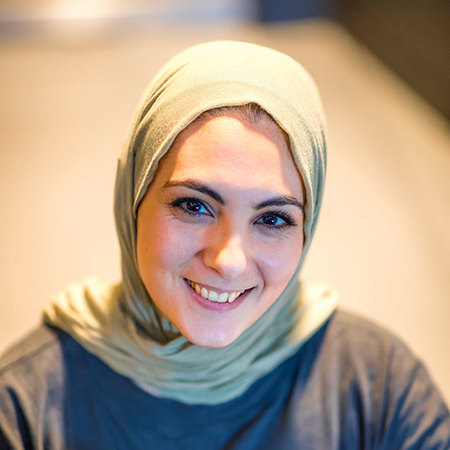Don’t Trust That (Femtech) App – Most Health Apps Don’t Meet ORCHA’s Data Privacy, Assurance Standards
Executive Summary
Of thousands of health apps, including femtech apps, reviewed by ORCHA, only 20% meet the required standards to be considered “trustworthy.”
“Femtech” is booming and a trend that’s accompanied by hundreds of apps addressing a wide range of women’s health from period-tracking, pregnancy and nursing to sexual wellness and reproductive health.
In this sea of apps, how is one to know which ones are trustworthy? Not very many, according to the Organisation for the Review of Care and Health Applications (ORCHA), which has reviewed hundreds of femtech apps to provide transparency for patients, health care professionals and health care organizations and governments, such as for safety and clinical assurance.
“Of all the health apps [including femtech apps] that have been reviewed by ORCHA, only 20% meet the required standards,” Fatima Ahmed, a practicing obstetrician and gynecologist who is ORCHA’s clinical lead told Medtech Insight. The majority of apps fail to meet ORCHA’s standards for data privacy and professional assurance, she said.
 Fatima Ahmed, clinical lead at ORCHA
Fatima Ahmed
Fatima Ahmed, clinical lead at ORCHA
Fatima Ahmed
ORCHA, which is undergoing its sixth iteration of app review, reviewed 554 women-related apps of which 121 met the requirements to be listed in its App Library. The organization’s algorithms look at more than 350 criteria across three main components – data security, clinical assurance and user experience – including digital health standards and regulations, and an adapted version of the NICE Evidence Standards Framework. Each app in the ORCHA App Library receives an ORCHA Score, which provides clarity on how each femtech app ranks. The 121 listed femtech apps received a score of 65% or higher, which is the threshold to be included in the App Library. The higher the score, the more compliant the app, and the more it can be trusted, Ahmed said.
“We review the product, including any supporting evidence of the product, such as clinical trials or studies that might be published, and we examine the apps with the relevant standards guidelines,” Ahmed said.
Ample Room For Innovation
When it comes to femtech apps, “there is still a lot to be desired” and “there could be so much more,” Ahmed said. Most of the femtech apps that are compliant, according to ORCHA’s criteria, are not medical devices or therapeutic apps, but rather digitized information leaflets. Ahmed said that’s not necessarily bad during this pandemic when many women are having a hard time making appointments with their providers or are facing long wait times. Apps can help with that. But she feels there are many more opportunities for femtech app developers on the device and therapeutic app sides, as well as help for women managing chronic conditions. She noted that app developers have made great strides in helping people with diabetes manage their disease.
“There are a few apps that are being developed and we’re keeping an eye on [underserved spaces in femtech], but they are not at the stage where they can be safely prescribed,” Ahmed said. There are some exceptions. Below are six femtech apps with an ORCHA percentage score that Ahmed would prescribe to her own patients:
Mutu System (91%) – A fitness app designed for pregnant and postpartum women. It tailors exercise toward the specific needs of pregnant women and new mothers such as pelvic floor problems and treating things like diastasis recti.
Mush (87%) – A “dating app for moms,” Mush connects moms in their local areas to address important issues such as social isolation that a lot of new mothers can experience. It provides new mothers with peer support, education and friendship.
Balance (76%) - A menopause support app founded by menopausal specialist Louise Newson. It allows perimenopausal and menopausal women to track their symptoms, access personalized expert content and download a health report and share personalized stories with others.
Squeezy (81%) – A pelvic floor training app supporting people with pelvic floor muscle exercise programs.
Two apps that are not yet included in the ORCHA app library, but have caught Ahmed’s attention for further review are:
Wild.ai – A fitness training app that applies science of female physiology to athletes. It is designed to help women train, recover and eat based on their menstrual cycle. It takes into account the fluctuations women bodies experience due to their menstrual cycles, menopausal and pregnancy statuses and tailors training accordingly.
Stella (by Vira health) – A personalized menopause support app with life coaching and tailored menopause treatment.
Background
Ahmed noted ORCHA was founded in 2015 by Liz Ashall-Payne, a former speech and language therapist turned entrepreneur, to provide transparency and accountability to health apps.
“We’re a global company providing services across NHS within the UK and Europe, North America, the Middle East and Australasia,” with the US being one of the newest clients, Ahmed said. ORCHA also works with app developers and innovators to ensure they meet required standards.
The group has reviewed thousands of apps by scouring the apps marketplace, allowing procurers and health care professionals to access a vault of compliance safety apps that can then be prescribed and recommended to patients in a safe way, she added.
“The market was completely unregulated and that continues to this day. Anyone can put anything in the App Store with claims and without any accountability – and that is dangerous,” she said. ORCHA’s business model is business to government and business to business. Clinicians pay a subscription fee to access the app library. ORCHA also curates libraries for apps to meet the specific needs of clients.
“The market was completely unregulated and that continues to this day. Anyone can put anything in the App Store with claims and without any accountability – and that is dangerous.” – Fatima Ahmed
“One of the biggest barriers to adoption of digital health from the clinician’s perspective is trust and that’s why we really focus on that aspect.” ORCHA is currently working on a proposed European standard for health apps and recently launched a “Digital Health Academy” with more modules to be published to improve digital health skills for clinicians. (Also see "Market Intel: Let's Talk About It — The Rising Tide Of 'Femtech' Companies " - Medtech Insight, 12 Feb, 2019.)
